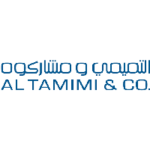-
Is the system of law in your jurisdiction based on civil law, common law or something else?
As a general rule, the Egyptian legal system is primarily based on the French civil law system, various other European codes and religious law. In practice, religious law is applied only to personal status and family matters which are governed by the religious law of the individual concerned. The fundamental and organic law of Egypt is the Constitution thereof, which was passed in a referendum in January 2014 and amended in another referendum in April 2019.
-
What are the different types of vehicle / legal forms through which people carry on business in your jurisdiction?
There are various legal forms through which investors may establish investments and carry on business in Egypt. The most common legal forms used by investors in Egypt are:
- Branch of a Foreign Company;
- Joint Stock Company (“SAE”);
- Limited Liability Company (“LLC”); and
- One Person Company (“OPC”).
The above-mentioned legal forms shall be mainly established and governed by the Egyptian Companies Law No. 159 of 1981 (the “Companies Law”), the Investment Law No. 72 of 2017 (the “Investment Law”), and the Capital Markets Law No. 95 of 1992 (the “CM Law”).
-
Can non-domestic entities carry on business directly in your jurisdiction, i.e., without having to incorporate or register an entity?
Any foreign entity carrying on business in Egypt is required to be registered in the Commercial Register in accordance with the Commercial Registrar Law No. 34 of 1976 (the “Commercial Registrar Law”), including the following cases:
- Investment projects established in accordance with the Investment Law;
- Foreign entities conducting commercial, financial, or industrial activities in Egypt or carrying out contracting operations by virtue of an awarded contract; and
- Foreigners engaged in export activity, whether they are individuals or partners/shareholders, regardless of their shares in the company’s capital.
In accordance with the Commercial Registrar Law, the application for registration shall be submitted by the trader, managers, or legal representatives of an Egyptian entity (such as a Branch, SAE, LLC or OPC) to the Commercial Registry Office with the relevant department in which the head office of the company or branch is located.
-
Are there are any capital requirements to consider when establishing different entity types?
With regard to the capital requirements of an SAE, the issued capital of the shareholders shall not be less than 250,000 Egyptian Pounds of which 10% shall be paid upon incorporation, an additional 15% within three months as of the date of the establishment of the company and the remaining 75% of the issued capital must be paid within five years.
No minimum capital is required for the incorporation of an LLC.
The capital of an OPC should be at least 1,000 Egyptian Pounds and should be paid fully in advance upon the incorporation.
It is worth noting that the issued capital cannot be less than 5 million Egyptian Pounds for any legal form of an entity whose main purpose is: (i) engaging in the establishment of capital companies or increasing the capital of such companies, (ii) regulating the issuance and trade of securities, or (iii) performing activities related to securities.
Furthermore, the issued capital of an SAE may not be less than 5 million Egyptian Pounds as one of the main conditions for a SAE to be registered in the Importers Registrar. As for the LLC, the capital may not be less than 2 million Egyptian Pounds for an LLC to be registered in the Importers Registrar.
It is worth highlighting that companies practicing/to practice certain non-banking financial activities shall require attaining a certain capital requirement, depending on the activity.
-
How are the different types of vehicle established in your jurisdiction? And which is the most common entity / branch for investors to utilise?
For the establishment of an Egyptian entity, certain documents are required to be submitted to the General Authority for Investment and Free Zones (“GAFI”) for the incorporation thereof. The main documents to be submitted for all types of legal forms are as follows:
- Copy of the primary contract and Articles of Incorporation including the name of the shareholders, founders or partners, whether physical or legal persons, their shares or quotas and their responsibilities in the composition of the Board of Directors in the case of an SAE and determining the company’s auditor and their remuneration;
- Non-confusion certificate of the company’s trade name approved by the Commercial Registry; and
- Certificate of appointment of the company’s accredited auditor’s certificate.
With regard to an SAE, additional documents shall be required, such as: (i) a certificate which proves the subscription of all of the bonds or the shares of the company, and a bank certificate from one of the authorized banks which proves that at least 10% of the issued capital of the SAE has been deposited, and (ii) a certificate from the Misr for Central Clearing, Depository and Registry (“MCDR”) confirming the deposit of the shares in the MCDR.
With regard to an LLC, no bank certificate confirming the deposit of the paid-up capital is required, as the Companies Law does not require a minimum paid-up capital for the incorporation process to be concluded.
GAFI shall review all the required documents in order to register the company at the Commercial Registry, which usually takes between one to two days. The company shall then gain its legal personality fifteen (15) days from the date of its registration in the Commercial Registry.
In practice, the most common entity to be utilised in Egypt by foreign investors is the LLC.
-
How is the entity operated and managed, i.e., directors, officers or others? And how do they make decisions?
As a general rule, an SAE is managed by a board of directors composed of at least three members chosen by the general assembly of the company for a period of three years except for the first board of directors, which will be appointed for a maximum period of five years, whether it is composed of foreigners or Egyptians.
An LLC is managed by one or more managers from among the partners or others, whether foreign or Egyptian, and are appointed for the first time by founders and replaced thereafter by a decision of the company’s general assembly, and their appointment may or may not be for a specified term.
In case there are multiple managers, the partners may agree on the formation of board of directors empowered with the authorities and functions indicated in the Articles of Association.
For the branch of a foreign company in Egypt, the foreign company must appoint a manager of any nationality to represent the said foreign company in Egypt.
The board of directors of an SAE or the manager of an LLC shall manage and operate the company’s daily operations. The chairman of the board of directors of an SAE may convene a board of directors meeting, whereby the decisions are to be issued by the majority of the attendees, unless the Articles of Incorporation states a specific majority number.
However, certain acts shall require the approval of the company’s general assembly such as the signature of related company contracts, the increase or decrease of the company’s capital, the change of the company’s name or legal form, the change of the company’s shareholders or partners, the change of the board of directors or manager’s powers and authorities.
-
Are there general requirements or restrictions relating to the appointment of (a) authorised representatives / directors or (b) shareholders, such as a requirement for a certain number, or local residency or nationality?
In accordance with the Companies Law, the general requirements shall differ depending on the chosen legal form, as follows:
- For an SAE: (i) the minimum number of shareholders shall not be less than three shareholders, and (ii) the board of directors of a SAE shall be composed of at least three members, whether foreign or Egyptians shareholders or board of directors’ members.
- For an LLC: (i) the minimum number of partners shall not be less than two partners, and (ii) there may be one or more manager appointed by the general assembly of the company, whether foreign or Egyptian partners or managers.
However, it is worth noting that certain companies shall require at least 51% of the SAE or LLC to be owned by Egyptian legal persons, such as companies operating in the Sinai Peninsula, or commercial agency companies.
As a general rule, the founders of an SAE or LLC shall be required to declare their competence to establish the company and that no convicting judgments have been issued against them for felony or misdemeanor for dishonesty or any other conviction stipulated in Articles 89, 162, 163 and 164 of the Companies Law during the five years preceding the submission of application for the establishment (unless they were accorded rehabilitation) and that they do not work for the Government, or public sector or public business sector.
-
Apart from the creation of an entity or establishment, what other possibilities are there for expanding business operations in your jurisdiction? Can one work with trade /commercial agents, resellers and are there any specific rules to be observed?
Instead of incorporating entities in Egypt for investment, foreign companies may enter into agreements such as agency agreements, franchise agreements, or sale purchase agreements.
It is worth noting that the commercial agent tasked with completing an act or concluding a deal on behalf of its foreign client shall be entitled to remuneration or fees, even if the deal or act has not been completed due to the client’s default. However, the commercial agent shall be entitled to compensation rather than remuneration if the deal has not been completed, as the commercial agent is being compensated for their efforts rather than the result of such efforts.
-
Are there any corporate governance codes or equivalent for privately owned companies or groups of companies? If so, please provide a summary of the main provisions and how they apply.
As a general rule, corporate governance for the main legal forms (SAE or LLC), shall be primarily governed by the Companies Law, its Executive Regulations, GAFI’s internal regulations and the certified Articles of Incorporation.
Furthermore, companies with listed securities on the Egyptian Stock Exchange (“EGX”) shall be required to submit periodically to the Financial Regulatory Authority (“FRA”) and the EGX, a disclosure report showing the structure of the shareholders, their number, the structure of the Board of Directors, the status of the treasury shares and the changes that occurred to them on a quarterly basis on the form approved by the FRA.
There are two types of general assembly meetings to be held by shareholders or partners upon the invitation of the chairman of the board of directors or the manager of an LLC: an Ordinary General Meeting (“OGM”) and an Extraordinary General Meeting (“EGM”). The OGM and EGM shall require the presence of the majority of the board of directors and the shareholders of an SAE, as stated in the Articles of Incorporation to attend in compliance with the necessary quorum for the validity of the meeting.
An OGM is competent to discuss and approve the following acts:
- To elect, appoint, or dismiss members of the board of directors;
- To determine the remuneration, allowances, and remunerations of members of the board of directors;
- To approve the distribution of the profits to the employees and the shareholders;
- To appoint the company’s auditor for the relevant financial year and determining the remuneration; and
- To approve the financial statements and the board of directors’ report on the company’s activities.
An EGM is competent to discuss and approve the following acts:
- Increase or decrease of the issued capital;
- Amend the company’s purpose, name, the shareholders’ rights, authorities, or the restrictions related to the types of shares;
- Extend or shorten the duration of the company, dissolving the company before its term, amending the percentage of losses on which the company has to be dissolved, or merging the company with another; and
- Submit all or some of the shares of the increase directly to the public offering without considering the priority rights of the old shareholders.
-
What are the options available when looking to provide the entity with working capital? i.e., capital injection, loans etc.
In accordance with the Companies Law, a company’s capital may be increased by one of the following options:
- The main option is to increase the capital by cash injection;
- The conclusion of a shareholders loan agreement or shareholders current account, by virtue of which debt-to-equity swap shall occur, granting the shareholders additional rights in the company against the loan and thereafter the company shall increase its capital by credit balances provided by the shareholders’ loan;
- Capital increase by virtue of in-kind shares, which shall be evaluated and such evaluation report shall be approved by the general assembly of the company;
- A resolution of a company’s EGM, upon the proposal of the board of directors, partner or managing partners, as the case may be, may decide to convert the reserve money or part thereof into shares whose value shall increase the company’s issued capital.
-
What are the processes for returning proceeds from entities? i.e., dividends, returns of capital, loans etc.
The general assembly of the relevant company has the sole discretion to make any decisions with regards to the distribution of profits of the company, as confirmed by Constitutional Court Judgment No. 134 JY 37.
According to the Companies Law, the right to distributable profits does not rise except after the issuance of the general assembly’s resolution approving the financial statement and distribution of profits.
Furthermore, the board of directors or the manager of the company shall execute the general assembly’s resolution with regards to the distribution of profits within a maximum period of one month from the date of the issuance of such resolution. This was also confirmed by Appeal No. 323 JY 71, which highlighted that employees shall not have any rights to Distributable Profits, except after the certification of such general assembly resolution, and prior to such certification the right to Distributable Profits is only considered a potential right and not an actual right.
-
Are specific voting requirements / percentages required for specific decisions?
As a general rule, for the validity of the quorum of an EGM, which shall not be valid unless attended by shareholders representing at least half of the company’s capital, if the minimum quorum is not available in the first meeting, a second meeting is called to be held within the thirty days following the first meeting, and the second meeting is considered valid if attended by a number of shareholders representing at least one quarter of the capital.
The resolutions of the EGM shall be issued by a two-thirds majority of the shares and capital shares represented at the EGM, unless the resolution relates to increasing the authorized capital, reducing the capital, dissolving the company before its term, changing its purpose, merging or dividing it, provided that the validity of the resolution in these cases shall be issued by a majority of three-quarters of the shares and capital shares represented in the meeting.
However, with regard to the quorum required for validity, an OGM shall not be deemed valid unless attended by shareholders representing the capital stipulated in the company’s Articles of Incorporation, provided that such limit is not less than one quarter of the capital, unless the company’s Articles of Incorporation provides for a greater quorum while not exceeding half of the capital. If the minimum quorum is not met at the first OGM, a second OGM shall be held within the following thirty days. The second OGM shall be considered valid regardless of the number of shares represented therein.
The resolutions of the OGM shall be issued by an absolute majority of the number of votes prescribed for the shares represented at the OGM, unless the Articles of Incorporation indicates the requirement for a higher percentage.
Regarding the attendance quorum of a board of directors meeting of an SAE, at least half of the members of the board of directors must attend the meeting including the chairman, provided that the number of attendees is not less than three members, or the number stated in the Articles of Incorporation, whichever is greater. Regarding the voting quorum, the decisions in a board of directors meeting are issued by a majority of the attendees unless the Articles of Incorporation requires a specific majority number.
Moreover, the following specific resolutions issued by virtue of an OGM or EGM require a certain approval percentage of the general assembly:
- The manager(s) may be dismissed if the majority which represents three-quarters of the capital of the company represented at the EGM approve. In all cases, when reviewing the company’s annual financial statements and to be approved by virtue of an OGM, the term of the manager(s) may be renewed, or it may appoint a new manager(s).
- The shareholders’ agreement does not apply to other shareholders unless it is approved by a decision issued by virtue of an EGM with majority votes of at least three-quarters of the capital of the company, or by an absolute majority in the following cases: (i) if additional voting rights or distribution of the profits or during the liquidation have arisen out of the shareholders agreement, (ii) if the regulations concerning the netting contracts were applicable on the shareholders’ agreement, or (iii) if the contract includes provisions that put restrictions or measures on dealing with the shares or the management of the company.
-
Are shareholders authorised to issue binding instructions to the management? Are these rules the same for all entities? What are the consequences and limitations?
The powers of the manager(s) in an LLC are determined by virtue of the Articles of Incorporation at the time of the incorporation of the LLC and/or by virtue of an amendment contract of an EGM, which may extend or limit the powers of the manager(s).
As a general rule, the board of directors in an SAE may have wider authorities and powers in the management of an SAE by virtue of the Articles of Incorporation and/or by virtue of an OGM which may extend or limit their authorities for certain acts and in particular cases such as the sale of assets of the company and the authorized signatory of the board members to sign all related contracts.
-
What are the core employment law protection rules in your country (e.g., discrimination, minimum wage, dismissal etc.)?
In accordance with the Egyptian Labour Law No. 12 of 2003 (the “Labour Law”), employees may not be discriminated against in their salaries based upon their gender, origin, language, religion or creed.
The employer shall put in place internal work regulations and disciplinary sanctions regulations, explicitly clarifying the rules which govern the organization of work and disciplinary sanctions, which shall be issued in Arabic and certified by the competent administrative authority, namely in practice the labour office.
According to the Ministerial Decree No. 15 of 2025, the minimum monthly salary for employees employed in private companies established in accordance with the Companies Law and/or the Investment Law, has been fixed at a minimum amount of 7,000 Egyptian Pounds, as of 01/03/2025.
As a general rule, according to Article 104 of the Labour Law, definite employment contracts shall end upon the expiry date, and the employee shall not have the right to terminate the employment contract for a definite period prior to the expiration date thereof, except for in the following cases: (i) the employment contract included a clause that allows the employee the right to resign before the expiration date thereof; or (ii) in the event that the duration of the employment relationship exceeds five years, the employee may have the right to terminate the employment relationship by virtue of a three-month prior notice in accordance with Article 104 of the Labour Law. However, the employer and employee may agree in advance on a compensation amount in the employment contract in case the employee terminates the employment contract before its expiry date.
It is worth noting that, the employer shall not have the right to terminate indefinite employment contracts unless the employee commits a gross error, according to Article 69 of the Labour Law, noting that the employer shall have the burden to prove that the employee has committed such gross error.
In the event the employer terminates the employment contract for an indefinite period without any gross error being committed by the employee, the employee shall be entitled to compensation which is equivalent to the salary of at least two months for each year of service in addition to any other financial entitlements (if any).
-
On what basis can an employee be dismissed in your country, what process must be followed and what are the associated costs? Does this differ for collective dismissals and if so, how?
Article 69 of the Labour Law discusses cases based upon which the employee may be terminated from his employment, and it is stated that the employee shall not be terminated unless they committed a serious error during their employment service:
- If it is established that the employee has assumed a false identity or submitted false documents;
- If it is established that the employee has committed an error resulting in serious damages to the employer, provided that the employer shall notify the competent authorities of such an event within twenty-four hours from becoming aware of its occurrence;
- If, despite warning, the employee repeatedly fails to observe the instructions necessary to be followed for the safety of employees and the establishment, provided that they are issued in writing and put up in a prominent place;
- If the employee is absent without legitimate justification for more than twenty intermittent days during the same year, or more than consecutive days, provided that a written warning is issued to the employee by registered letter with acknowledgement of receipt, ten days after his absence in the first case, and five days after his absence in the second case, shall recede his discharge;
- If it is established that the employee has divulged the secrets of the employer’s establishment, leading to the occurrence of serious damages to the establishment;
- If the employee embarks on competing with the employer in the same activity;
- If during the working’ hours, the employee is found to be in a state of drunkenness or intoxication; or
- If it is established that the employee has aggressed against the employer or the general director or has committed serious aggression towards any of his superiors.
It is worth noting that the situations stipulated in Article 69 of the Labour Law are not the only situations that are deemed as a gross error; it is a non-exhaustive list and any act may be deemed as a gross error in accordance with the sole discretion and interpretation of the competent labour office and the certified internal work regulations of the company.
As a rule, any disciplinary sanctions that may be imposed on the employee in case of non-performance of his/her job duties or any other situation regulated by the certified internal work regulation, shall be taken in accordance with the statutes regulating the certified internal work and disciplinary sanctions.
Furthermore, according to Article 64 of the Labour Law, any company shall not be entitled to impose a penalty or disciplinary sanction on any employee, except after informing him in writing of the attributed actions, hearing the employee’s statements, investigating the employee’s defence and proving this in minutes deposited in a confidential file, provided that the investigation begins no later than seven days from the date of discovering the violation.
In the event the employer terminates the employment contract for an indefinite period without any gross error from the employee’s side, the said employee shall be entitled to a compensation that is equivalent to the salary of, at least, two months for each year of service in addition to any other financial entitlements (if any).
-
Does your jurisdiction have a system of employee representation / participation (e.g., works councils, co-determined supervisory boards, trade unions etc.)? Are there entities which are exempt from the corresponding regulations?
According to the Companies Law, employees may participate in the management of an SAE; there are three methods which may be included in the Articles of Incorporation in order for employees to participate in the management of the company, as follows:
- Employees may act as representatives in the board of directors, whereby the Articles of Incorporation shall determine the selection method, term and number;
- Participation of the employees in the management of the company on the basis of their ownership of the company’s shares subject to certain conditions; or
- Participation of the employees in the management of the company through an auxiliary administrative committee. The Articles of Incorporation may include a provision which highlights the formation of the auxiliary administrative committee with a decision from the board of directors of the employees’ representatives.
Furthermore, the Trade Union Organizations and the protection of the right to organize Trade Unions Law No. 213 of 2017 grants the employees of an establishment the full right to establish, join or withdraw from a union committee, in accordance with the applicable Egyptian laws and internal regulations of the relevant union committee, which shall be published in the Official Gazette as of the date of its establishment. A union committee shall be formed by at least fifty employees.
-
Is there a system governing anti-bribery or anti-corruption or similar? Does this system extend to nondomestic constellations, i.e., have extraterritorial reach?
The Egyptian Penal Law No. 58 of 1937 (as amended) (the “Penal Law”) shall be the law governing all anti-bribery or anti-corruption rules and systems, whereby Articles 103 to 111 of the Penal Law regulate all anti-bribery and anti-corruption rules prohibiting any payment, promise of payment, or benefit made to a public official or employee holding a government position, in order to do, omit to do, or breach any of their governmental duties or obligations of transparency. In addition to possible imprisonment, the said public official committing such crimes shall be required to pay fines and the amounts received illegally shall be confiscated.
The Anti-Money Laundering Law No. 80 of 2002 (the “Anti-Money Laundering Law”) provides that the Egyptian judicial authorities shall exchange with foreign judicial authorities judicial cooperation in the field of money laundering crimes, related to predicate crimes and terrorist financing crimes, with regard to assistance, letters rogatory and the extradition of defendants, convicted persons and objects, all in accordance with the rules established by bilateral or multilateral agreements to which Egypt is a party or in accordance with the principle of reciprocity.
The entities shall, automatically or at the request of their counterparts in other countries, provide the greatest possible international cooperation to combat money laundering and related predicate crimes or the financing of terrorism, in a manner that does not contradict the basic principles of the legal system in the State, and ensures the confidentiality of such cooperation.
-
What, if any, are the laws relating to economic crime? If such laws exist, is there an obligation to report economic crimes to the relevant authorities?
Economic Courts have been established in Egypt by Law No. 120 of 2008, whereby an economic court shall be established in each court of appeal circle. The Economic Courts shall have the exclusive jurisdiction to hear criminal cases arising from the many crimes set forth in the following laws, as amended by Law No. 156 of 2024:
- Crimes contained in the Penal Code regarding forged coins and counterfeits.
- Crimes of the Companies Law.
- Crimes contained in the Capital Market Law.
- Crimes contained in the Law on the Supervision and Control of Insurance in Egypt.
- Crimes contained in the Investment Law.
- Crimes contained in the Law of Financial Leasing.
- Crimes contained in the Law of Central Registration Depository of Securities.
- Crimes contained in the Real Estate Finance Law.
- Crimes contained in the Law of Protecting Intellectual Property.
- Crimes contained in the Code of the Central Bank and the Banking System and Currency.
- Crimes contained in the Law of Operating Firms in the area of the Receipt of Funds and Investment.
- Crimes contained in the Law regulating Restructuring, Protective Composition and Bankruptcy.
- Crimes contained in the Act of Protection of the national economy from the effects of harmful practices in international trade.
- Crimes contained in the Antitrust and Preventing Monopolistic Practices Law.
- Crimes contained in the Anti-Money Laundering Law.
- Crimes contained in the Law regulating movable guarantees.
- Crimes contained in the Law regulating microfinance activity.
- Crimes contained in the Anti-Cybercrime Law.
- Crimes contained in the Consumer Protection Law.
- Crimes contained in the Telecommunications Regulatory Act.
- Crimes contained in the Law on the Organization of the Electronic Signature and the establishment of the Information Technology Industry Development (ITIDA).
Furthermore, as per Egyptian law, there is no explicit obligation to report any crime.
However, the Anti-Money Laundering Law provides that financial institutions and non-financial professionals and businesses shall be required to immediately notify the Anti-Money Laundering and Combating the Financing of Terrorism Unit established at the Central Bank of Egypt of any transactions that they suspect constitute proceeds or involve money laundering or terrorist financing or attempts to carry out such operations of any value.
-
How is money laundering and terrorist financing regulated in your jurisdiction?
The Anti-Money Laundering Law No. 80 of 2002 has been adopted and implemented to battle crimes related to the laundering of funds from illegal acts including terrorism funding, prostitution, drug trafficking, and arms dealing.
Any person who has knowledge that funds or assets are derived from a crime and deliberately commits any of the following shall be deemed to have committed the crime of money laundering: (i) transfer of proceeds with the intention of concealing the property, disguising its nature, source, location, owner or right holder, altering its truth, preventing the discovery thereof, or obstructing access to the perpetrator of the crime, or (ii) acquisition, possession, use, management, preservation, exchange, deposit, guarantee, investment, manipulation of their value, concealment or disguise of their true nature, source, location, disposal, movement, ownership or rights related to them.
For further regulation and control, an independent unit of a special nature for combating money laundering and terrorist financing shall be established at the Central Bank of Egypt. The said unit shall be responsible for receiving notifications received from financial institutions and non-financial professionals and businesses of operations suspected of constituting proceeds or involving money laundering or terrorist financing or attempts to carry out such operations.
By virtue of Financial Regulatory Authority Decree No. 161 of 2024 (the “FRA Decree”), anti-money laundering provisions and controls to combat terrorism financing shall be applicable on Egyptian stock exchanges, financial institutions and physical persons licensed to non-banking financial activities (“Designated Persons”). In addition, the Anti-Money Laundering Law provisions shall be applicable on the abovementioned.
In accordance with the FRA Decree, the Designated Persons shall be required to abide by the following principles:
- Principle No. 1: The responsibility to put in place a defined and explicit policy to combat money laundering and terrorism finance;
- Principle No. 2: Put in place a risk-based program to assess and determine the risks of money laundering and terrorism finance;
- Principle No. 3: The good selection and continuous training of qualified and professionally skilled personnel to ensure their integrity.
-
Are there rules regulating compliance in the supply chain (for example comparable to the UK Modern Slavery Act, the Dutch wet kinderarbeid, the French loi de vigilance)?
The Egyptian Labour Law is the only law in Egypt governing all employment rights and related matters in the corporate world. Furthermore, the Environmental Law No. 4 of 1994 is a great step to achieving a greener future, as Egypt strives to protect the environment through restricting private and public funded projects in respecting environmental standards to be followed.
Any person who has knowledge of a crime for which the Public Prosecution can file a lawsuit without the need to receive a complaint or request may inform the Public Prosecution or a judicial officer thereof, as per the Criminal Procedure Law No. 150 of 1950. Such crimes may be related to corruption and economic crimes within a supply chain. The Egyptian legal system does not provide legal protection for any whistle-blowers and thus offers no motivation for any whistle-blowers to come forth with any knowledge of corruption.
However, a project related to the adoption of a law on the protection of whistle-blowers and witnesses has been under review before the House of Representatives since 2022, which shall guarantee the necessary protection for witnesses, whistle-blowers and experts at risk in cases in which the testimony or report thereof leads to the disclosure of a crime, its evidence and/or any of its perpetrators.
-
Please describe the requirements to prepare, audit, approve and disclose annual accounts / annual financial statements in your jurisdiction.
The company’s balance sheet, financial statements and board of directors’ report shall be prepared within at least two months from the end of the company’s financial year, and such documents shall be placed at the disposal of the auditors by the end of the said period.
The board of directors of an SAE and the manager(s) in an LLC, as the case may be, shall prepare and draft a written report on the company’s position and activity during the year.
The company’s auditor as appointed in the Articles of Incorporation or by an OGM, shall be competent to review the financial statements and the auditor’s report regarding the company’s annual financial statements, to be signed and affixed with the auditor’s stamp and signed by the company’s chairman or manager.
The financial statements and the auditor’s report shall be approved by virtue of an annually held OGM, requiring the approval of the general assembly in accordance with the required quorum for validity as included in the Articles of Incorporation of the company.
-
Please detail any corporate / company secretarial annual compliance requirements?
The annual compliance requirements for Egyptian entities are as follows:
- OGM approving the financial statements shall be annually submitted for certification at GAFI;
- In accordance with the standard Articles of Incorporation template, the board of directors shall convene at least twice during each financial year;
- Annual membership renewals of chambers, such as the Chamber of Commerce;
- MCDR declarations in the event of amendment(s) to the Articles of Incorporation of an SAE;
- Every company offering securities for public subscription is required to provide the FRA with its semi-annual activity and progress reports, disclosing data and information revealing its actual financial position;
- Annual tax declarations to be submitted to the ETA offices; and
- Companies established in accordance with the Investment Law shall submit an annual statement as from the fiscal year following the commencement date of production or activity, including the following information: (i) volume of the company investment, (ii) financial statements, (iii) number of employees, their positions, nationalities and total salaries, (iv) capital as provided in the last budget and the investment cost, (v) official headquarters and activity practice location, (vi) nature of incentives granted to the company, (vii) names of partners or shareholders of company owners, (viii) commercial register and tax number, (ix) statement of the system adopted by the company in the field of society development outside the investment project, and (x) approved purpose and incentives granted purpose.
-
Is there a requirement for annual meetings of shareholders, or other stakeholders, to be held? If so, what matters need to be considered and approved at the annual shareholder meeting?
According to the Companies Law, an OGM shall be held at least once every year at least three months before the end of each financial year of the company.
There are certain cases where the OGM must be held prior to its normal time. If more than one third of the members of the board of directors resign, the remaining members of the board of directors shall call on the general assembly to immediately schedule an OGM to elect their replacements, provided that the OGM shall be held within thirty days from the occurrence of such resignation(s).
-
Are there any reporting / notification / disclosure requirements on beneficial ownership / ultimate beneficial owners (UBO) of entities? If yes, please briefly describe these requirements.
In March 2020, a Ministerial Decree No. 41 of 2020 (the “Decree”) was issued and entered into force, amending the Executive Regulations of the Commercial Registry Law No. 34 of 1976. The Decree was issued in light of certain laws including, inter alia, the Anti-money Laundering Law No. 80 of 2002.
According to the Decree, any person, whether natural or juristic, that is registered with the Commercial Registry in Egypt is required to create a special register for the “Beneficial Owners” and annotate in this Beneficial Owner Register specific data including, inter alia, Beneficial Owners’ data who actually owns or controls the said person, whether such Beneficial Owner is juristic person(s) or legal interest(s). Such data is required to be (i) updated once any change is made to the said ownership or control; and (ii) notified to the competent Commercial Registry immediately upon the occurrence thereof.
The Beneficial Owner Register is required by the Decree to be available to any judicial officer upon request. According to the Decree, any person subject to the Decree is required to maintain the Beneficial Owner Register throughout its registration with the Commercial Registry.
-
What main taxes are businesses subject to in your jurisdiction, and on what are they levied (usually profits), and at what rate?
An annual tax shall be levied on the net aggregate profits of all types and forms of legal persons, whatever their objectives and law of incorporation (the “Annual Tax”).
The Annual Tax shall apply to (i) legal persons residing in Egypt, with respect to all profits whether realized in Egypt or abroad, and (ii) non-resident legal persons, with respect to the profits through a permanent establishment in Egypt.
The Annual Tax rate, i.e., corporate income tax (CIT) rate in Egypt is 22.5% on the net taxable profits of a company.
-
Are there any particular incentive regimes that make your jurisdiction attractive to businesses from a tax perspective (e.g. tax holidays, incentive regimes, employee schemes, or other?)
Various Double Taxation Treaties (“DTT”) have been concluded by Egypt with over 50 countries, in order to facilitate and develop the tax charges on operations and transactions held between an Egyptian entity and a non-Egyptian entity, whereby for example by virtue of a DTT dividends may be taxed under national law at 10% in the case of unlisted shares, or a flat rate of 5% in the case of listed shares.
Furthermore, in accordance with the Income Tax Law, the following shall be exempted from income tax:
- Proceeds obtained by legal persons on securities and certificates of deposit issued by the Central Bank or revenues resulting from dealings therein.
- Dividends received by the parent company or holding company from resident and non-resident subsidiaries after adding 10% of the value of these distributions to the taxable base of the parent or holding company against non-deductible costs, provided that the percentage of the parent or holding company’s contribution to the capital of the subsidiary company or voting rights shall not be less than 25%. The period of holding such percentage shall not be less than two years or shall be committed to holding such percentage for a period of two years from the date of acquisition of shares or voting rights.
Companies established in accordance with the Investment Law for the operation of an investment project in Egypt, shall receive an investment incentive in the form of a discount on the taxable net profits as follows:
- A 50% discount on the investment costs in the geographic locations which most urgently need development, in accordance with the Investment Map, and based on the data and statistics issued by the Central Agency for Public Mobilization and Statistics, and according to the distribution of investment activities in such areas.
- A 30% discount on the investment costs for the rest of the areas in Egypt, in accordance with the distribution of the investment activities, for investment projects, including inter alia, labor-intensive projects, projects which depend on or produce new and renewable energy, electricity generation and distribution projects, projects which export their production outside Egypt, automotive manufacturing and auto-feeding industries, and agricultural waste recycling industries.
In all cases, the investment incentive shall not exceed 80% of the paid-up capital until the activity start date, in accordance with the provisions of the Income Tax Law. The discount period should not exceed seven years from the activity’s commencement date.
Moreover, for investment projects established in a Free Zone, in accordance with the Investment Law shall be entitled to import or export their goods, machines or commodities for the practice and operation of their project without the need to apply the import and export regulations and shall not be subject to customs duties, value-added tax, nor other taxes and duties.
-
Are there any impediments / tax charges that typically apply to the inflow or outflow of capital to and from your jurisdiction (e.g., withholding taxes, exchange controls, capital controls, etc.)?
Egyptian entities distributing dividends for a financial year or several financial years by virtue of an OGM to revert to their resident or non-resident shareholders, except for distributions made in the form of bonus shares, shall be subject to a taxable rate of 10% (“WHT“).
It is worth noting that the WHT rate shall be applied at each level of companies in Egypt. The WHT rate may be decreased in the event of the existance of an applicable DTT between Egypt and the country of the non-resident shareholder, in order to facilitate the tax charges on the transactions between Egyptian residents and their related non-Egyptian residents.
Furthermore, Article 56 of the Income Tax Law provides that offshore WHT at a rate of 20% will not be in place on the loan interest paid to the non-resident entity in the event that the loan period exceeds three years. In the event of having an intercompany agreement instead of a loan agreement, the WHT will be in place regardless of the period of the agreement.
-
Are there any significant transfer taxes, stamp duties, etc. to be taken into consideration?
Under the Income Tax Law, if related companies place conditions in their commercial or financial transactions that differ from those between unrelated companies, that will reduce the tax base or transfer its burden from one taxable company to another exempt or non-taxable company. Therefore, the ETA shall be entitled to determine the taxable profit on the basis of the neutral price of the relevant transaction, which shall be deemed as transfer pricing of transactions concluded between related companies under common ownership or control.
The Egyptian Tax Authority (“ETA”) shall verify the proper application of neutral price (market price) by related persons in their transactions with respect to the exchange of goods, services, raw materials, capital equipment, the distribution of shared expenses, royalty returns and other commercial or financial transactions that are carried out.
A Transfer Pricing Decree was adopted in 2018 to provide new tax guidelines when a cross-border transaction between related companies is to be concluded, triggering the submission of specific documents by the concerned companies.
Moreover, the Stamps Tax Law No. 111 of 1980 provides that a stamp tax shall be imposed on documents, publications, and transactions. Stamp tax shall be payable on documents from the date of their issuance and without regard to their validity. Stamp tax shall be payable on non-documents of facts and transactions from the date of their realization, and on objects from the date of their preparation as required by their nature and purpose.
If the document does not include the actual value of the transaction, or the ETA considers that the value mentioned therein or in the notification under which the tax is paid is less than one tenth of the real value, the ETA may estimate this value according to the evidence revealed to it.
-
Are there any public takeover rules?
The Capital Market Law No. 95 of 1992 (the “CM Law”) and its Executive Regulations governs (i) the purchase offers for shares and bonds convertible into shares in companies listed on the EGX, whether directly or indirectly, and (ii) the purchase offers for shares and bonds convertible into shares in companies whose shares have been offered in a public offering in Public Subscription, even if such companies are not registered with the EGX.
Public takeovers in Egypt shall require, in most cases, a public tender offer, whether a voluntary public tender offer or a mandatory public tender offer. The public tender offer shall be submitted to the FRA with a draft memorandum and all other required supporting documents.
The obligation to submit a mandatory public tender offer shall apply to any person who acquires, individually or through related persons, within twelve consecutive months, 5% or more of the capital or voting rights of the company and/or by reaching certain ceilings (25%, 50 % or 75%) of the company’s capital.
In the event that the acquiring company wishes to continue listing the shares of the target company on the EGX, the acquiring company shall be required to submit a mandatory public tender offer for 100% of the ordinary shares, with the deduction of 10%, which is the minimum free-float for the target company to remain listed on the EGX.
-
Is there a merger control regime and is it mandatory / how does it broadly work?
In the event of merger between two or more companies, GAFI and in particular the Economic Performance Sector (“EPS”) has control over the evaluation of the assets and liabilities of the merged and surviving company. Therefore, as an initial procedure to achieve a merger, a list of documents shall be submitted to the EPS related to the merging and surviving company, for review and the EPS shall be required to issue its report prior to implementing any merging procedures, whereas an EPS report shall be issued after the evaluation of assets and liabilities of companies’ subject to the merger.
The EPS report is required to be issued prior to commencing any of the merger procedures including, inter alia, (i) the conclusion of a merger contract, (ii) approval of the merger by an EGM for each of the companies subject to the merger, (iii) MCDR declarations and (iv) the Egyptian Competition Authority notification (the “ECA”).
In accordance with the Egyptian Antitrust and Preventing Monopolistic Practices Law No. 3 of 2005, as recently amended by Law No. 175 of 2022 which was published in the Official Gazette on December 29th, 2022 (the “Antitrust Law”), the Economic Concentration legal transactions subject to the inspection of the ECA, shall be defined as including inter alia the merger or acquisition of one or more persons with an existing person retaining their legal personality after the merger, or by the establishment of a new person, excluding the merger or acquisition between companies affiliated to the same person, which transaction may be considered as a restructuring.
-
Is there an obligation to negotiate in good faith?
As a general rule, Egyptian Law does not explicitly recognize the duty to negotiate in good faith. However, according to the Civil Code, a contract must be performed in accordance with its contents and in compliance with the requirements of good faith; therefore, if the relevant parties agreed under any pre-closing agreement (e.g., Memorandum of Understanding or Letter of Intent) that they must act in good faith, they must both subsequently negotiate in good faith.
-
What protections do employees benefit from when their employer is being acquired, for example, are there employee and / or employee representatives’ information and consultation or co-determination obligations, and what process must be followed? Do these obligations differ depending on whether an asset or share deal is undertaken?
An acquisition shall not result in the termination of employment contracts of employees in the company which is subject to the acquisition. However, companies facing difficult financial situations shall have the right to completely or partially shutdown the entity or downsize by terminating the employment contracts of a number of their employees, provided that (i) a downsizing request shall be submitted to the competent authority for approval; and (ii) the competent syndication and the employees shall be notified of both the downsizing request and approval, once issued in accordance with the Labour Law. In this case, the dismissed employee(s) shall be entitled to an indemnity equivalent to one month salary for the first five years and equivalent to one and a half months salary for the remaining period.
In the event that the downsizing request is rejected by the competent authority, a company may still chose to terminate employment contracts, which will be deemed as an arbitral dismissal in this case and from which will arise a right of indemnification in accordance with the provisions of the Labour Law and the employment contracts to be respected, taking into consideration the seniority of each employee and their financial benefits as stipulated in their respective employment contracts.
-
Please detail any foreign direct investment restrictions, controls or requirements? For example, please detail any limitations, notifications and / or approvals required for corporate acquisitions.
By virtue of a Ministerial Decree issued in 2019, the Executive Regulations of the Investment Law provides that all companies incorporated or to be incorporated in Egypt – regardless the legal form applied thereto – shall provide GAFI with certain information and data in order to calculate the direct and indirect foreign investment capital.
In this respect, any company is under the obligation to submit the following:
- Reports within a maximum of 30 days from (i) the incorporation date, and (ii) any change of its capital, purpose, shareholding structure or board members;
- Quarter reports within a maximum of 45 days from the end of the relevant quarter; and
- Annual reports within four months as of the end of the financial year.
Furthermore, non-Egyptian investors are not allowed to hold or acquire more than 49% of the share capital in any company carrying out importation business for resale purposes in Egypt, in accordance with the Importation Registrar Law No. 121 of 1982. However, on October 29th, 2023, Law No. 173 of 2023 was issued to amend the provisions of the Importers Registrar Law No. 121 of 1982, by virtue of which non-Egyptian investors owning more than 49% of a company’s share capital may be registered in the importers registrar, provided that the total periods of registration in the importers registrar do not exceed 10 years as of October 30th, 2023.
By virtue of Law No. 14 of 2012 related to the development of the integrated Sinai Peninsula, legislative restrictions to foreign investment have been adopted as follows:
- Lands and real estate in the Sinai region may only be 100% owned by legal persons with no foreign capital participation and by Egyptian natural persons with no other nationality;
- The investment or development project for non-Egyptians in the region must take the form of an Egyptian SAE, in which the participation rate of Egyptian nationals is not less than 55% and these companies are obligated to obtain the approval of the Board of Directors of the National Authority for the Development of the Sinai Peninsula and pay all related fees and expenses.
-
Does your jurisdiction have any exchange control requirements?
The Central Bank of Egypt Law No. 194 of 2020 provides the rules and principles relating to the regulation of the foreign exchange market. The exchange rate of the Egyptian Pound against foreign currencies is determined by the interaction of supply and demand forces in the foreign exchange market. Banks may carry out all foreign exchange operations, including accepting deposits, dealing, transferring in and out, operating and hedging their foreign exchange balances. Banks may export and import foreign currencies subject to the approval of the Central Bank of Egypt.
-
What are the most common ways to wind up / liquidate / dissolve an entity in your jurisdiction? Please provide a brief explanation of the process.
The liquidation of Egyptian entities is deemed as one of the most common ways to dissolve an entity, in accordance with the Companies Law and its Executive Regulations.
Shareholders or partners may decide and approve by virtue of an EGM to liquidate the company, appoint a liquidator and determine their remuneration (“Voluntary Liquidation”). In this case, the liquidation shall be optional, as opposed to a mandatory liquidation which is based on a court judgment ordering the dissolution of the company, by virtue of which the court shall indicate the mode of liquidation and appoint the liquidator and determine their remuneration.
In the event of Voluntary Liquidation, one or more liquidators may be appointed by the EGM, they may be shareholders, partners, board members or third parties. Upon the certification of the EGM, the commercial register of the company shall be annotated with the liquidation status and the name of the liquidator appointed.
Thereafter, the liquidator shall begin preparing the liquidation report, which shall be updated every six months with an OGM to be held every six months to approve the report including the final report at the end of the liquidation period. The report and a request shall be submitted to GAFI for its approval and within 120 days from the date of the submission, a response shall be issued with the company’s rights and obligations to be settled.
Moreover, in the event the number of partners or shareholders in a SAE or LLC falls below the minimum legal number which is three shareholders in an SAE and two partners in an LLC, the said company will be considered dissolved, unless it proceeds, within a period of six months (the “Grace Period”), with (i) the completion or correction by virtue of selling quotas or shares to related or third parties, or (ii) merging the company with another surviving company.
In the event that the Grace Period has expired without the finalization of either of the aforementioned options, the companies with shareholders or partners below the minimum required number shall be dissolved by the force of law. As a result, every company after its dissolution shall be considered to be in a state of liquidation; an EGM shall be held for each company dissolved in order to approve the commencement of the liquidation process and to appoint a liquidator and determine their remuneration.
Egypt: Doing Business In
This country-specific Q&A provides an overview of Doing Business In laws and regulations applicable in Egypt.
-
Is the system of law in your jurisdiction based on civil law, common law or something else?
-
What are the different types of vehicle / legal forms through which people carry on business in your jurisdiction?
-
Can non-domestic entities carry on business directly in your jurisdiction, i.e., without having to incorporate or register an entity?
-
Are there are any capital requirements to consider when establishing different entity types?
-
How are the different types of vehicle established in your jurisdiction? And which is the most common entity / branch for investors to utilise?
-
How is the entity operated and managed, i.e., directors, officers or others? And how do they make decisions?
-
Are there general requirements or restrictions relating to the appointment of (a) authorised representatives / directors or (b) shareholders, such as a requirement for a certain number, or local residency or nationality?
-
Apart from the creation of an entity or establishment, what other possibilities are there for expanding business operations in your jurisdiction? Can one work with trade /commercial agents, resellers and are there any specific rules to be observed?
-
Are there any corporate governance codes or equivalent for privately owned companies or groups of companies? If so, please provide a summary of the main provisions and how they apply.
-
What are the options available when looking to provide the entity with working capital? i.e., capital injection, loans etc.
-
What are the processes for returning proceeds from entities? i.e., dividends, returns of capital, loans etc.
-
Are specific voting requirements / percentages required for specific decisions?
-
Are shareholders authorised to issue binding instructions to the management? Are these rules the same for all entities? What are the consequences and limitations?
-
What are the core employment law protection rules in your country (e.g., discrimination, minimum wage, dismissal etc.)?
-
On what basis can an employee be dismissed in your country, what process must be followed and what are the associated costs? Does this differ for collective dismissals and if so, how?
-
Does your jurisdiction have a system of employee representation / participation (e.g., works councils, co-determined supervisory boards, trade unions etc.)? Are there entities which are exempt from the corresponding regulations?
-
Is there a system governing anti-bribery or anti-corruption or similar? Does this system extend to nondomestic constellations, i.e., have extraterritorial reach?
-
What, if any, are the laws relating to economic crime? If such laws exist, is there an obligation to report economic crimes to the relevant authorities?
-
How is money laundering and terrorist financing regulated in your jurisdiction?
-
Are there rules regulating compliance in the supply chain (for example comparable to the UK Modern Slavery Act, the Dutch wet kinderarbeid, the French loi de vigilance)?
-
Please describe the requirements to prepare, audit, approve and disclose annual accounts / annual financial statements in your jurisdiction.
-
Please detail any corporate / company secretarial annual compliance requirements?
-
Is there a requirement for annual meetings of shareholders, or other stakeholders, to be held? If so, what matters need to be considered and approved at the annual shareholder meeting?
-
Are there any reporting / notification / disclosure requirements on beneficial ownership / ultimate beneficial owners (UBO) of entities? If yes, please briefly describe these requirements.
-
What main taxes are businesses subject to in your jurisdiction, and on what are they levied (usually profits), and at what rate?
-
Are there any particular incentive regimes that make your jurisdiction attractive to businesses from a tax perspective (e.g. tax holidays, incentive regimes, employee schemes, or other?)
-
Are there any impediments / tax charges that typically apply to the inflow or outflow of capital to and from your jurisdiction (e.g., withholding taxes, exchange controls, capital controls, etc.)?
-
Are there any significant transfer taxes, stamp duties, etc. to be taken into consideration?
-
Are there any public takeover rules?
-
Is there a merger control regime and is it mandatory / how does it broadly work?
-
Is there an obligation to negotiate in good faith?
-
What protections do employees benefit from when their employer is being acquired, for example, are there employee and / or employee representatives’ information and consultation or co-determination obligations, and what process must be followed? Do these obligations differ depending on whether an asset or share deal is undertaken?
-
Please detail any foreign direct investment restrictions, controls or requirements? For example, please detail any limitations, notifications and / or approvals required for corporate acquisitions.
-
Does your jurisdiction have any exchange control requirements?
-
What are the most common ways to wind up / liquidate / dissolve an entity in your jurisdiction? Please provide a brief explanation of the process.























